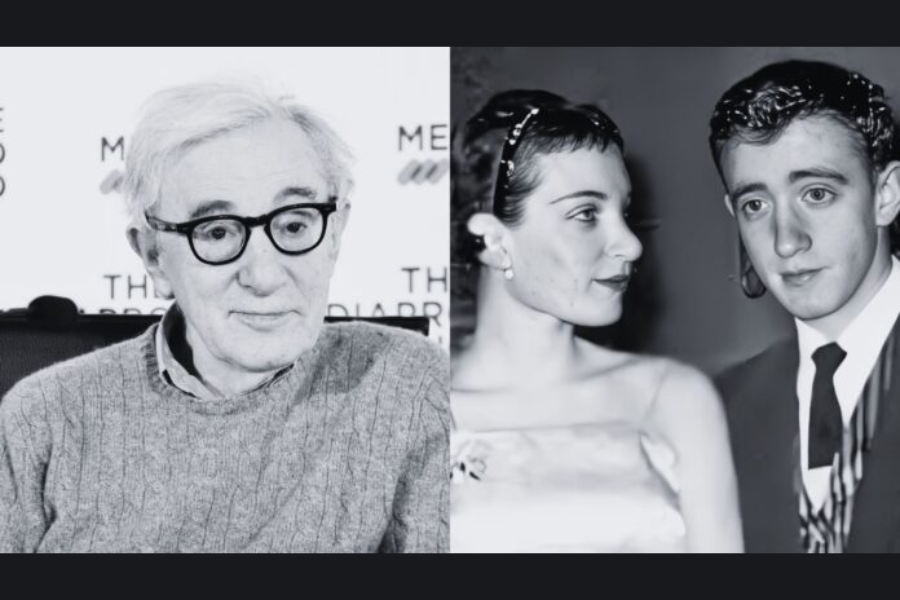Harlene Rosen: A Life Beyond Woody Allen And More Explore Here
Harlene Rosen may not be a household name to many, but for those familiar with the filmmaker Woody Allen’s life and career, her connection to him remains a pivotal chapter. As Allen’s first wife, Rosen’s marriage to the legendary director is often discussed in the context of his early life, though her story extends far beyond their brief union. This article seeks to explore Harlene Rosen’s life, offering a deeper look into her background, her experiences, and the challenges she faced in the public eye due to her association with Woody Allen.
Early Life and Background
Born in 1939 in New York City, Harlene Rosen grew up in a vibrant and culturally rich environment. Though much of her early life remains private, it’s clear that her formative years in the city played a significant role in shaping who she would become. New York, with its intellectual and artistic atmosphere, was the perfect backdrop for Rosen to nurture her own aspirations.
It was during her time in New York that Rosen crossed paths with a young Woody Allen. At the time, Allen was still struggling to make a name for himself as a stand-up comedian and writer, and Rosen, a curious and ambitious young woman, was beginning her journey into adulthood. The two met when Rosen was just 17, and they married shortly after in 1956, when she was only 19 and Allen was 20.
Marriage to Woody Allen
Their marriage came during a period when Allen was still establishing his career, and the couple lived in New York City while Allen worked on honing his craft. The age gap between them was not significant, but their differing stages in life quickly became apparent. As a young woman, Rosen found herself trying to balance her personal development with the pressures of being the wife of a rising public figure. The marriage, while filled with early hopes, began to unravel after five years, and in 1962, they parted ways.
The divorce, which was not entirely amicable, marked the end of a chapter in both of their lives, but it also sparked a long-lasting public narrative. Allen, with his growing fame, frequently referenced their marriage in his early stand-up comedy, often making jokes at Rosen’s expense. These comedic routines, some of which were harsh and derogatory, painted Rosen in a negative light, a portrayal that would linger in the media for many years.
The Aftermath of the Divorce
Allen’s comedic material about their marriage, particularly jokes that mocked Rosen, became infamous. One of the more well-known jabs he made was calling Rosen “the Quasimodo of Brooklyn,” a cruel remark that hurt her deeply. In 1966, Rosen took legal action against Allen, filing a defamation lawsuit. The lawsuit was eventually settled, but it marked a significant moment in Rosen’s life. It was a powerful act of reclaiming her dignity and confronting the unfair and public portrayal she had endured.
This legal battle was one of the few moments Rosen actively sought to control her public narrative, standing up to the ridicule she had long faced. It was a significant step for a woman who had largely remained out of the limelight but who now had to contend with the fame of her former husband and the public’s perception of their relationship.
Living in the Shadow of Fame
After her divorce from Woody Allen, Harlene Rosen tried to retreat from the public eye, choosing a life of privacy away from the constant media attention that surrounded Allen’s rising career. While Allen’s fame skyrocketed in the following decades, Rosen’s name continued to surface in connection with him, leaving her to live much of her life overshadowed by his notoriety.
This dynamic—where an individual’s identity is overshadowed by their association with a famous figure—is not unique to Rosen. Many people who have relationships with well-known individuals often find their personal lives intertwined with that fame, even long after the relationship has ended. For Rosen, this meant that her efforts to build a life away from the spotlight were continually disrupted by her ex-husband’s public persona.
The Impact of Public Scrutiny
The scrutiny Rosen faced after her marriage to Woody Allen had long-lasting effects on her. Being constantly associated with a celebrity can take an emotional toll, particularly when that celebrity becomes a controversial figure. As Allen’s career progressed, his personal life became even more publicly scrutinized, especially with his relationships with actress Mia Farrow and Soon-Yi Previn. These new controversies only kept Rosen’s name in the media, as people continued to draw connections to her past marriage.
The public perception of Rosen remained tied to her former husband’s controversies, making it difficult for her to fully escape the shadow of their past. For years, she remained largely silent on the matter, refraining from engaging in the public discussions surrounding Allen’s career or personal life.
Life After Allen
Following her divorce, Rosen made a deliberate effort to distance herself from the public eye. There are few details about her life post-divorce, as she has largely kept her personal life private. What is clear is that Rosen chose not to seek fame or public recognition, unlike many ex-spouses of famous individuals who continue to remain in the spotlight. Instead, she carved out a life away from Hollywood, living quietly and focusing on her own personal development.
While Allen was busy building his career on the world stage, Rosen quietly pursued a life of introspection and growth, far from the glare of the media.
Reclaiming Her Identity
Today, Harlene Rosen remains largely a private figure, often reduced to the role of “Woody Allen’s ex-wife” in popular discussions. However, her life should not be solely defined by her connection to him. Rosen’s decision to sue Allen for defamation in the 1960s was a pivotal moment in her story. It was an act of self-empowerment that demonstrated her refusal to be defined by others’ negative perceptions. It was also a significant effort to separate her identity from Allen’s, and it helped her take control of the narrative that had long been shaped by his jokes.
Conclusion
Harlene Rosen’s story is one of resilience and quiet strength. While her marriage to Woody Allen may have shaped her public identity for a time, it is important to remember that she is much more than just a footnote in his life. Her legal battle for defamation, her decision to live a private life, and her refusal to allow herself to be defined solely by her former husband all demonstrate her strength of character.
In a world that often reduces individuals to their associations with famous figures, Harlene Rosen’s life is a reminder of the complexities of personal identity and the power of reclaiming one’s narrative. She remains a quiet, yet enduring figure, whose story deserves recognition on its own terms.







